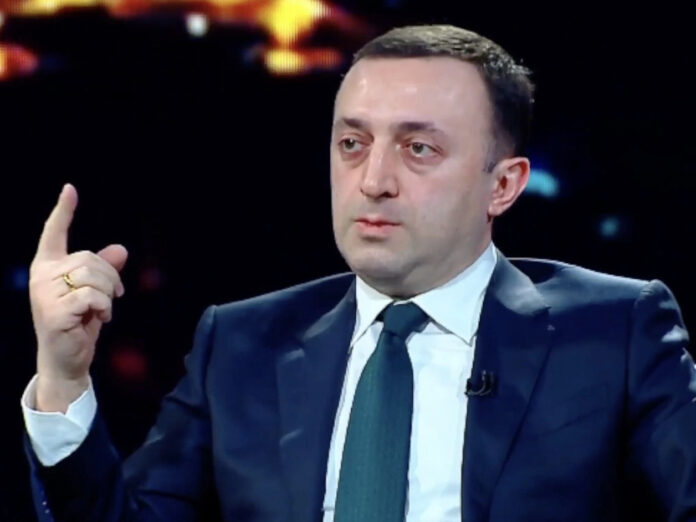TBILISI (Eurasianet.org) — “Liberal fascism” has become one of the most commonly used terms in the Georgian ruling party’s efforts to discredit those who mobilized resistance to their notorious “foreign agents” bill.
After massive protests forced the Georgian Dream party to withdraw the widely-opposed piece of legislation during the second week of March, the party ratcheted up its demonizing rhetoric against the Western-funded NGOs that the bill would have targeted.
“A campaign planned according to the best traditions of liberal fascism was the running theme of the protests incited against the law on agents,” Irakli Kobakhidze, chairman of the ruling Georgian Dream party, told reporters on March 14.
“Unprecedented pressure was exerted through organized groups on politicians, prominent persons, and their family members, including minors” to protest the bill, he alleged.
During the second week of March, tens of thousands of Georgians converged on the parliament building in Tbilisi after Georgian Dream and its allies approved their “foreign agents” bill in the first reading. Georgia’s international partners had implored Georgian Dream to drop the bill, and various segments of the public had registered grave objections.










